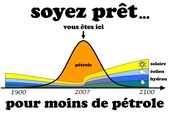Kigali uses ContourGlobal to convert methane from Lake Kivu into electricity
Ecofin Agency 28 May 2014
The Rwanda ContourGlobal will rely on to produce electricity from methane mixing and CO2 that contains Lake Kivu, on the border between Rwanda and DR Congo, reports AFP.
The American company, in this context, signed a concession 25 years with the Rwandan state and EWSA, public company for production and distribution of electricity in Rwanda.
It will operate some km60 3 methane and about 300 km3 carbon dioxide contained in this lake 2370 km2 is "the only one in the world where this gas can be commercially exploited," we learn.
"There is no drilling, the gas is pumped into the lower layers of the lake that are saturated with methane" explained Yann Beutler, head of KivuWatt pilot project that already provided 2MW electricity from the methane lake. "From the moment the water rises to the surface, it releases gas and the gas is collected," added Mr. Beutler, stressing that the methane is extracted from the mixture and sent to a plant on the shore, while the CO2 be dissolved in water and returned to the depths of the lake.
The KivuWatt pilot project required an investment of nearly 200 million, financed by about 45% by loans from international institutions for official development assistance, reports AFP.
http://www.agenceecofin.com/gaz/2805-20 ... lectricite



